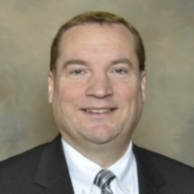 |
The Lord guides his people to select public servants of the gospel.
After 24 years of faithful service, Pastor Smithson decided to retire. The members of the congregation knew that the Lord would provide another pastor to care for their souls. Pastor Smithson had assured them of that when he announced his retirement. They didn’t know, however, how the Lord would provide. Their retiring pastor had mentioned something about the call process, but they had no idea what to expect.
Every year, hundreds of congregations face a similar situation. A pastor retires. A principal accepts a divine call to serve somewhere else. A teacher resigns to care for her children. As a result, a congregation needs a new worker to serve in its name as a representative of Christ.
In such times, we turn to the Scriptures. Unfortunately, there is no book of Scripture that gives us a specific calling process. The Lord gives his people great freedom. In light of what he teaches in Scripture, he allows them to determine the process in extending a divine call.
An example from Scripture
Though no sections of Scripture mandate a particular process, some describe how the early Christian church extended calls. In Acts 1:15-26, we find a sample process. While the disciples were in Jerusalem awaiting the promised Holy Spirit, Peter addressed the congregation. First, he laid out the ministry need. Because Judas had gone “where he belongs” (Acts 1:25), there were only 11 apostles. In order to fulfill prophecy and assist with the proclamation of the gospel, the believers desired to call a replacement.
Then Peter explained the qualifications for the position. The individual had to have been with the apostles from the beginning of Jesus’ ministry. He was to be an eyewitness of Jesus’ resurrection. The congregation, with the guidance and supervision of the apostles, proposed a list of candidates—two men: Justus and Matthias.

Recognizing that they were merely the Lord’s instruments in extending this call, the congregation turned to the Lord in prayer. Both of the candidates met the criteria presented. Not knowing which of the two the Lord desired to serve as an apostle, they prayed, “Lord, you know everyone’s heart. Show us which of these two you have chosen to take over this apostolic ministry” (Acts 1:24,25).
Then they “cast lots” (Acts 1:26). We don’t know the details of this process. It’s possible that, after discussing the candidates, a vote was taken. The final words of Acts 1:26 could be translated, “He was chosen by vote to be added to the eleven apostles.” One way or another, a selection was made, and the group recognized him as the Lord’s apostle.
Here are some important thoughts about this account. The call sought the man; the man did not seek the call. Matthias or Justus did not campaign for the office nor did they apply for the position. The believers recognized that their role in the process, while important, paled in comparison to the Lord’s role.
A process not mandated in the Bible
The process the early Christians followed is an example. We are free to determine a process that we think will best serve the needs of congregations and ministries. That process, however, must reflect the Scripture’s teaching about the divine call and must also demonstrate love for others.
Some church bodies, as a regular practice, form pastor search committees. Those committees advertise the opening and request applications. They interview candidates and give them an opportunity to preach in the congregation and meet with the people. On the basis of the interviews and the comments of members, one candidate is selected and called.
While acknowledging that there is no divinely mandated process, the servant-leaders of our church body have agreed upon a process that reflects Scripture’s teachings.
Because the Lord has given his church freedom in this matter, we cannot condemn that practice as unscriptural or sinful. The call is divine not on the basis of the process, but because the Lord extends the call through his people and stands behind the public ministry that he instituted. However, while we would be free to use search committees, there are some clear dangers. First, it may give the impression that the search committee plays a more important role in the process than the Lord. Second, it may rob the called individual of the comfort that the Lord has placed him in a particular place. Third, it may lead congregation members to think that they have the right to fire the worker, since they hired him.
The method used in WELS
While acknowledging that there is no divinely mandated process, the servant-leaders of our church body have agreed upon a process that reflects Scripture’s teaching on the divine call. For the sake of order, they have decided to follow the same process throughout the synod. Though calling bodies may have the right to follow a different process, they will want, out of love, to forego that right for the sake of unity and peace.
The process bears some similarities to the one used in Acts 1. When a congregation identifies a need for a pastor, whether that’s to expand ministry or to replace a departing worker, the leaders contact the president of their district. The district president meets with the members of the congregation in a pre-call meeting. At that meeting, the congregation identifies its opportunities and challenges and what it believes it needs in the man who will serve as its pastor. Because some may harbor unrealistic expectations, the district president will gently remind the congregation that neither Jesus nor the apostle Paul is available for a call.

After meeting with the congregation, the district president prepares a list of candidates. He does not draw names from a hat or throw darts at a board. He seeks counsel and suggestions from others. With patience and prayer, he develops a list. He provides basic information about each of the candidates, with the confidence that the Lord could use any of the men on the list to bless the calling body. None of them applied for the position, because the call seeks the man.
After the district president or his representative presents the list of candidates, the members of the calling body turn to the Lord in prayer. Trusting that the Good Shepherd is guiding the process, they free themselves from the stress of picking just the right person for the office. The members of the congregation discuss the candidates and then cast their vote, trusting the Lord to guide their decision. Balloting continues until one has received the majority of the votes. At that time, the call is made unanimous to assure the individual called that the members of the congregation recognize it as the Lord’s call.
Once the call has been extended, the people of God turn again to the Lord in prayer. They ask the Lord to bless the one called with wisdom as he considers this new opportunity to serve. Then they wait for the Lord, in his time, to provide the worker that the Lord desires the congregation to have.
This is the second article in a four-part series on the divine call. It is a reprint of a series run in 2012. Read the first article.
Learn more about the divine call in a Bible study developed by the Conference of Presidents. It’s available at welscongregationalservices.net/called-to-serve-bible-study.
Author: Earle D. Treptow
Volume 109, Number 06
Issue: June 2022
- The Lord calls: Article 4
- The Lord calls: Article 3
- The Lord calls: Article 2
- The Lord calls: Article 1







